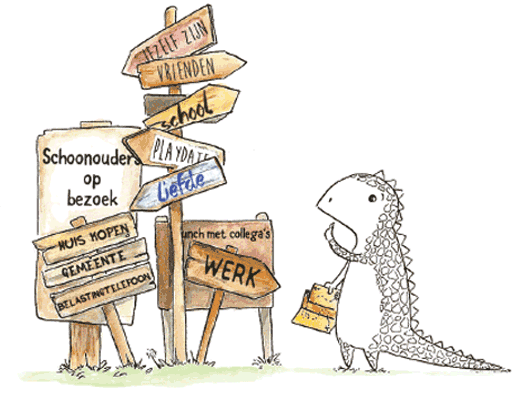What is the challenge?
The challenge is to learn words in a new way, different from how we learned them in school.
How?
1. Do things you enjoy or are relevant to you
Read things you like, go to places you think are fun, watch movies or tv programmes that you enjoy, interact with significant people in your life, like the shopkeeper, the daycare teacher, your coworker, your friend (remember to use metacommunicatie!). You will very likely bump into new words.
2. Select words relevant to you, your life, your interests
It is important you don’t just learn random words as selected by your teacher or your textbook, or try to memorize each and every new word you come across in your daily life, but consciously choose words that are relevant to you and your daily routines and interest.
3. Link relevant words to an image, context, synonyms or similar words.
If you decide a word is interesting enough to remember, write it down (with the article de/het if it’s a noun) on a blank sheet you stick to the wall or in your notebook. Add either a drawing or image, context info (the sentence in which you first heard or saw the word) or synonyms and similar words.
For example:

Het dakterras
Ik zit met mij vrienden op ons nieuwe dakterras.
Het is lekker weer.
Or:
Twijfelen = aarzelen, dubben, in dubio zijn
Ik weet niet goed wat ik moet kiezen, ik twijfel nog. |
